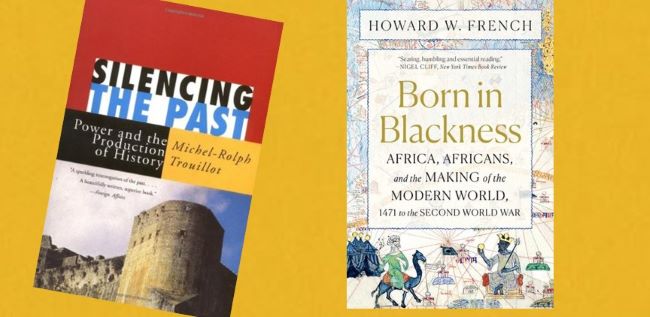A few days ago, I began reading Howard French's Born in Blackness: Africa, Africans, and the Making of the Modern World, 1471 to the Second World War (2021). Early on in the reading process, I began thinking of Silencing the Past. French invokes Trouillot's book in direct and indirect ways.
For one, French gives voice to many histories that have long been silenced. Most notably, he is addressing the centrality of Africans and forced African labor to modernity and the creation of things like "the New World" and "The West."
[Related: Preliminary impressions of Born in Blackness]
There are a couple of moments when French cites Trouillot. Memorably, Silencing the Past first made me aware that the scale of slavery in the Caribbean far surpassed bondage in the United States, pointing out that more black people were enslaved on the tiny island of Martinique, a country smaller than Long Island, than all of the US. French presents that same point and cites Trouillot.
French goes even further, though, by drawing on even more scholarship and offering in-depth discussions of the truly awful processes of sugar production for enslaved black people in Brazil and the Caribbean.
There's this moment when French is discussing the Haitian Revolution and the victories of the rebels against Britain in battle. "And yet the Black colony's name has never appeared on a regimental banner in remembrance of a major campaign or sacrifice," writes French, "marking yet another act of historical silencing in this symphony of erasure" (367). [Emphasis added.]
I've been reading French's book and thinking about how little I knew concerning details about Africa, the Caribbean, and the Transatlantic Slave Trade. But I feel somewhat better as I consider my many intellectual travels along the road from Silencing the Past to Born in Blackness.
Related:


No comments:
Post a Comment